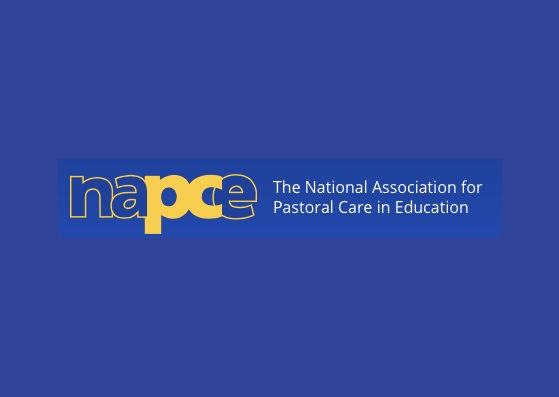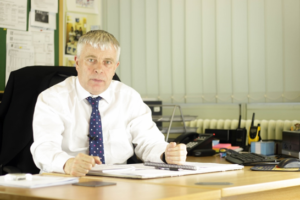Making a positive difference to young people through pastoral care
Pastoral care in schools across the UK and further afield is proven to be critically linked to the academic and personal-social development of young people. NAPCE continues to support education providers in the process of pastoral care implementation and development. It is here that we share important news of our latest activities, events and best practice guidance.

|
|
ARTICLE: The Hidden Impact of Pastoral Care by NAPCE Chair Phil Jones
As a teacher, when you meet people during the summer holiday they will often comment on what a great job it is.
It is interesting that for the rest of the year there does not seem to be the same interest in taking on the challenges and demands that teachers face every day.
What is not always appreciated is that teachers need the long break in the summer for their own wellbeing. It is only by looking after their own well-being that teachers can be emotionally prepared for the different situations and demands that are placed on them, by the young people in their care.
Teachers, in most cases, join the profession not because of the excitement of improving their results by one per cent, or because of the wages and long holidays, but because they want to make a difference in the future life chances of young people.
To be able to achieve this, teachers need to be empathetic to the needs of other people and focused on meeting their needs and for this reason no teacher should feel any guilt about recharging their batteries during the summer holiday in preparation for future challenges.
As a headteacher I was often asked when I would be in school during the holiday and the response, ‘not until results day’ was often greeted with surprise by some people.
This was when I gave my time to my family, to pay back for all the late nights with meetings and weekends when I was working.
I think I knew deep down, that I was not going to be prepared for the challenges in the new academic year, unless I gave myself time in the summer.
The summer holiday for me was divided into three stages.
The first two weeks were unwinding and becoming a person again and realising that some of the issues I had worried about were not the end of the world and reflecting on what was important in life.
The middle two weeks were an exciting time of planning and thinking about ideas that could make a real difference in the new academic year fuelled by new energy and an emotional state of optimism.
The final two weeks saw reality creeping in again, with a realisation of the obstacles that would have to be overcome to achieve my new dreams and ideas.
The challenge was to focus on the ideas and not be restrained and distracted by negative thoughts about what could go wrong.
As a Leader the ‘recharging of the batteries’, is very important to develop the positive optimism and energised determination, that inspires other people to achieve the dream.
As a headteacher, results day was not something that I looked forward to, for many different reasons. Yes it was hard to leave the shorts and t-shirts on the side and put the suit back on, but for me the reason that I did not look forward to the day, was because no matter how well we had done, I knew I would always feel that we could have done better. It was the same question whether students had exceeded expectations or had disappointing results.
How could they have done better? This is not about defending poor performance, but a professional response driven by the determination to support every learner to achieve their full potential.
This creates a culture of continuous improvement and provides the energy and creativity, to achieve more for our young people in the future.
This reflection was usually focused on how we could motivate and inspire learners to achieve more. It was not all about changes to the curriculum or new approaches to teaching but how could we make young people believe in themselves and have the determination and resilience to succeed, especially when they faced challenges in their learning and lives.
It was then that the important pastoral interventions, that often happened without anybody being aware, would provide the motivation for the young person to keep going and work their way through the difficult times.
The huge feeling of responsibility for supporting all learners to achieve their full potential, did not stop me feeling extremely proud of the excellent results achieved by many students.
It is a great privilege for teachers to be able to share in the achievement of young people and to be proud of the contribution we have made.
For me on results day I got the greatest satisfaction, from the student who may not have achieved the top grades but who had achieved great results, by overcoming challenges and difficulties in their lives.
The pastoral support for these youngsters, was what had made the difference and would have a huge impact on improving the young person’s life chances.
I remember the girl whose father had died suddenly, in the week before the final examinations, who with the support of pastoral staff had taken the examinations and achieved pass grades.
I remember the boy who had been permanently excluded from two schools. The tough boy who had burst into tears, when I told him he had been chosen to go on a quality building residential because as he said, nobody had trusted him before.
Despite the poor start to his education and his lack of belief in himself, with the positive encouragement of pastoral staff, he achieved C grades in English and Mathematics and good passes in other subjects.
The summer is an important time of reflection, for all teachers when away from the busy daily life of the school, we can reflect on how we do make a difference in the lives of young people. This encourages a return to school, with determination and belief that we can improve the future life chances of all our students.
The new academic year is a time of accountability and action planning, but this process needs to inspire and motivate all staff, to have the belief that with appropriate support, all learners can achieve their full potential.
Reflecting on the planning and delivery of the curriculum, is part of this process but it should not be forgotten the important impact that effective pastoral support can have, on inspiring and motivating learners when it is most needed.
Pastoral teams need to be clear at the start of the academic year what their goals are and how they will use their energy and resources for the benefit of learners. This ensures that throughout the academic year, pastoral staff know what their priorities are and continue to be focused on how they can make a difference for all learners.
On behalf of NAPCE, I would like to wish all of our members and supporters a fulfilling and successful academic year and look forward to working with you, to promote effective pastoral support that makes a real difference in the future lives of all young people.
Phil Jones
National Chair
NAPCE
NEW: BBC Bitesize’s Starting Secondary School campaign launched
BBC Bitesize’s Starting Secondary School campaign is still up and running to support everyone through the move to secondary school.
It is full of support, resources and tips for teachers, pupils and parents; including peer-to-peer films on coping with first day nerves and making new friends, to celebrity tips and expert advice from leading child psychologists.
Whatever the concern of the student, or parent, there is a wealth of support on the site.
Fresh new content includes a film that gives us the inside track on secondary school slang and a peer-to-peer film on how you can turn it around even if you are struggling when you first start.
New content weekly, such as a soon-to-launch challenge on how fast you can tie a tie, so keep checking the website for info. Seven seconds is the time to beat if you’re interested….
www.bbc.co.uk/startingsecondaryschool
MEDIA WATCH: A round-up of the latest news stories involving pastoral care in education
At NAPCE we work very hard to stay across the national and international news media to store and share the latest stories involving pastoral care in education on our own platforms.
In this new feature for NAPCE News, we are sharing with you a selection of the biggest stories hitting the headlines this month with the aim that some of these reported developments may provide useful context within your work as a strategist or practitioner of pastoral support.
Here is a summary for August 2019.
“Mental health app developed in UK could help young people who self-harm – research” from Irish Examiner
“Parents skip meals to ensure children are fed in summer holidays, MPs say” from The Independent
“The children’s commissioner is wrong about children in care and school Ofsted grades” from Schools Week
“A-level results day: More girls take science A-levels than boys for first time ever” from The Independent
“Study reveals biggest factors on children’s mental health” from The National
Read here: https://www.thenational.scot/news/17834576.impact-social-media-not-big-sleep-cyber-bullying/
“Millions in local investment to support children and young people’s mental health” – The UK Government website
“Trio of dedicated mental health teams to work with youngsters in schools” from Thetford & Brandon Times
“Four in five school leaders say tougher GCSEs have detrimental effect on lower-ability students” from The Independent
Read here: gcse-results-day-2019-tougher-exams-vulnerable-students-mental-health-a9073366.html



